
Parents may dread having to give the sex talk to their children, but it’s actually so important to open those lines of communication on the subject. According to a 2016 report by JAMA Pediatrics, studies have shown that when parents talk to their children about sex, especially their teen girls, it can lead to “safer sex behavior among adolescents.”
As Laura Widman, one of the report’s authors, told The New York Times, “The take home message is that parents do matter, and these conversations do matter.”
But when should those conversations begin, and what should be included? CafeMom spoke with two experts to get their advice. We talked to Natalina Slaughter, a licensed professional clinical counselor at Cornerstone Therapy and Recovery. And in another interview we spoke with Alexandra Stratyner, a licensed psychologist at Stratyner & Associates.
It’s of course important to educate both young boys and young girls on this subject. But we’re focusing specifically on how parents can talk to their daughters — though some advice may be relevant for any child.
More from CafeMom: 15 Expert Tips for Parenting Teens From Anita Cleare
Start conversations young.
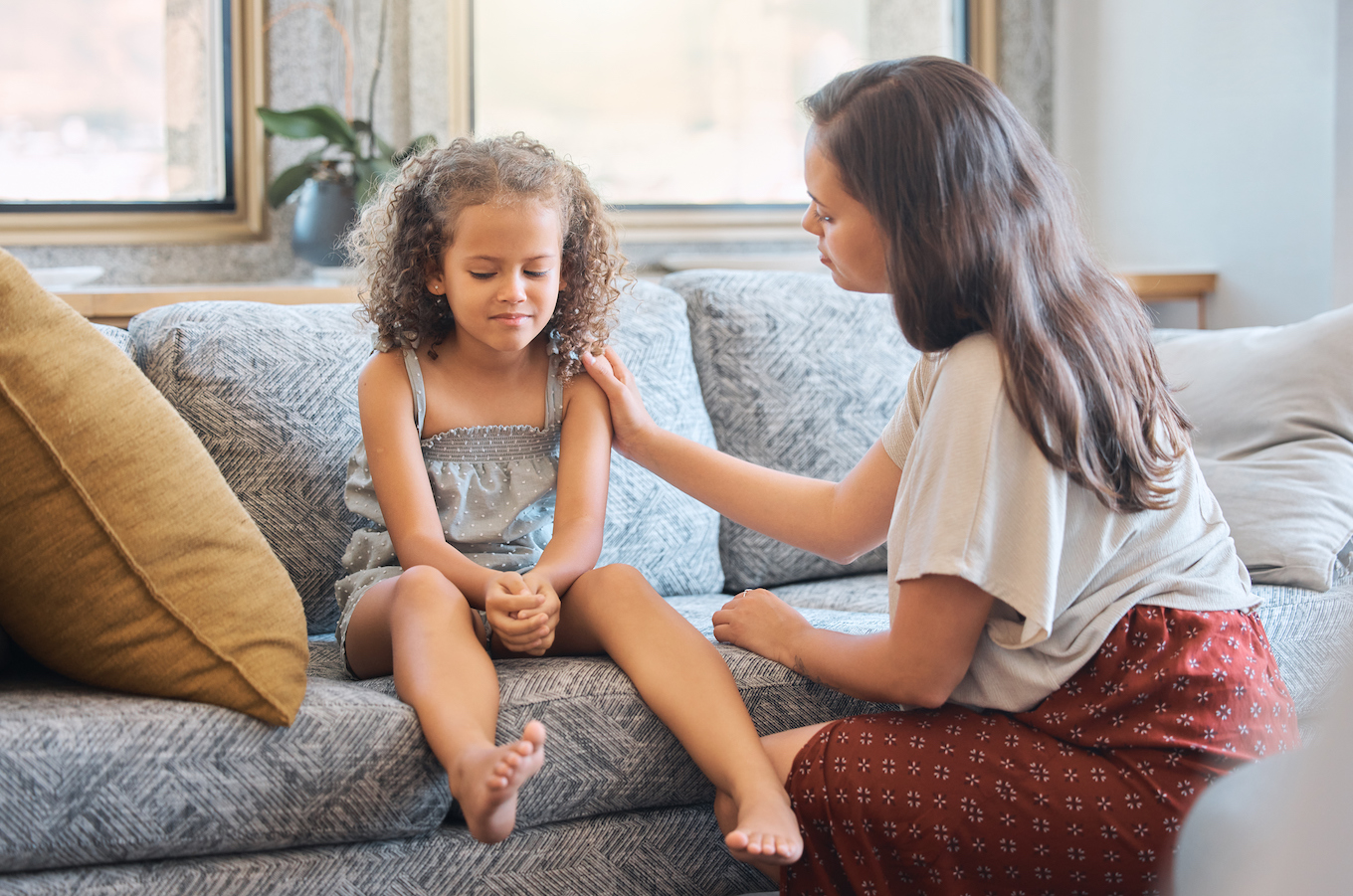
If parents wait until their daughters are teenagers to start discussing some of these topics, it’s really too late. Slaughter recommends teaching bodily autonomy to young children, including the proper names for all their body parts. “If your child knows the name of their hand or their foot, they should also know their names for their private parts as well,” she says.
Evolve conversations as they get older.

As the child grows up, parents can scale the conversations in “developmentally appropriate levels,” Stratyner says. Maybe that means explaining how babies are made to a kindergartner by saying, “There’s an egg in mommy’s belly.” Then “for an older child, you know, explaining intercourse,” Stratyner says.
“But by older, I really do mean, you know, elementary school.” She adds, “If we’re talking about how to make decisions about having sex, we want to do that really before middle school.”
After all, she says, “By the time we think … it’s ‘appropriate’ to have [those talks] as parents, kids have already begun to get information from their peers, from media.”
We want to make sure our kids get helpful, accurate information before then.
Abstinence-only education doesn't work.

Parents may hope that their teens don’t have sex at a young age, but giving abstinence-only sex education has historically been unhelpful. According to Columbia’s school of public health, studies have shown that this type of education is ineffective and doesn’t “delay sexual initiation or reduce sexual risk behaviors.”
Slaughter concurs. “It doesn’t give them enough information to make informed choices. And it’s sort of just leaving this big gap [of] information for kids to get through other sources, which may or may not actually be accurate,” she explains.
Instead, parents can help their kids understand options like birth control or condoms.
“Make sure that the child has, you know, the information they need and access to the medical health care that they need,” Slaughter says, adding that parents can take their teens to the doctor or to clinics such as Planned Parenthood that have information and resources.
Don't only focus on the negative.
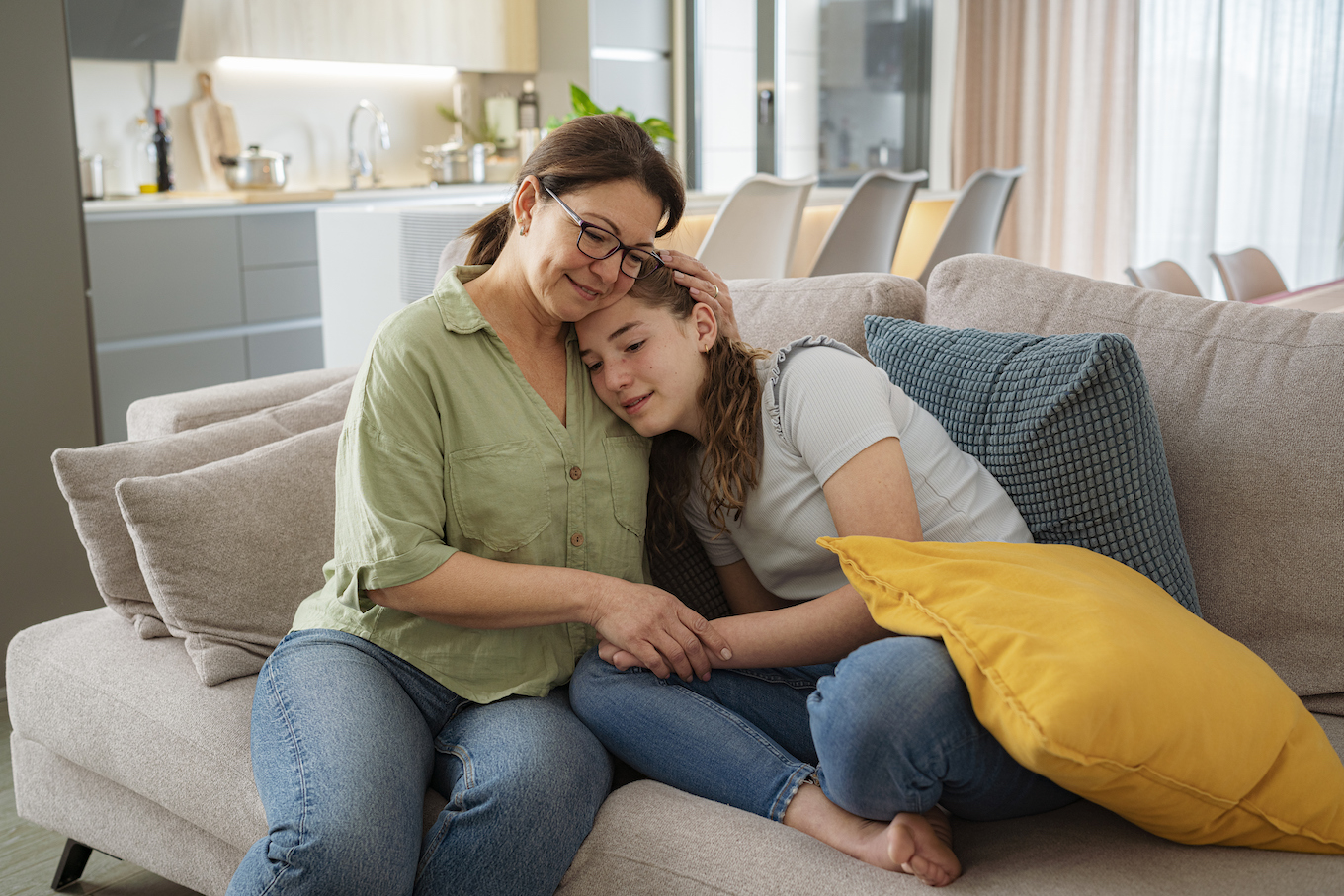
It’s understandable to want to tell our children about our concerns about STDs or teen pregnancy, but our conversations shouldn’t be intended to scare them.
“Painting everything in this really negative light can also not be the greatest because the child is gonna learn that there are positive aspects to sex,” Slaughter says. “Then when they do learn that, they might feel like a parent was lying through omission or not being completely forthcoming, which can, you know, not be great for the relationship.”
More from CafeMom: 5 of the Most Bonkers Pieces of Parenting Advice From 100 Years Ago
Include LGBTQ+ information.

Slaughter says it’s “totally normal” for parents to not necessarily know their child’s sexuality yet (or even for the child themselves to know). Because of that, it’s worth including LGBTQ-focused sexual health information when discussing the topic.
“Put that out there as a, ‘Hey, this is another normal part of human sexuality that you might wanna be aware of,'” Slaughter explains. “And then that kind of opens the door for the child to ask more questions later if they have more questions or if they feel like that is relevant to them.”
Teach consent.
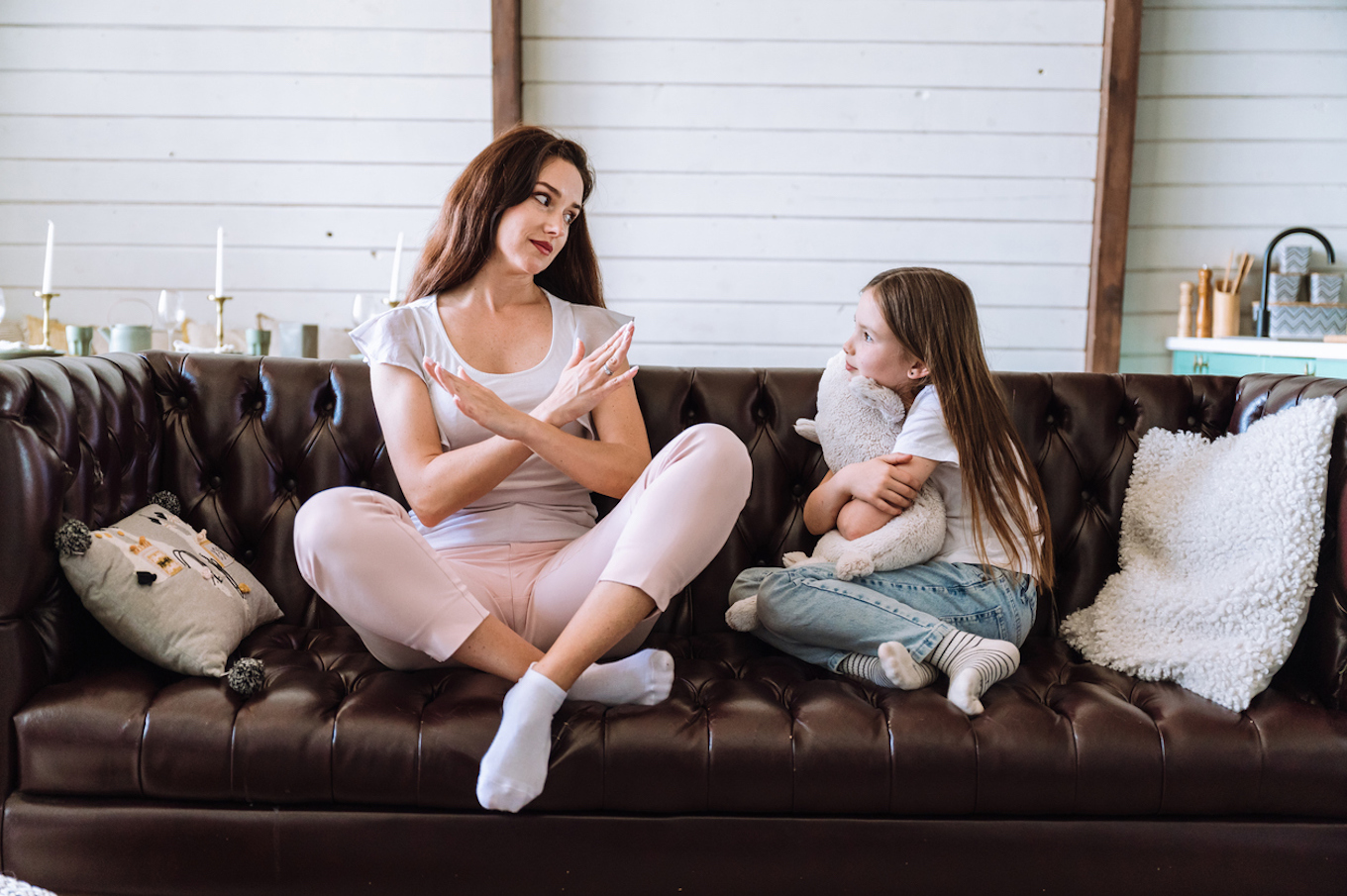
Teaching our children about consent from an early age is key. “They are the master of their own bodies and they get to choose what they wanna do and what they don’t wanna do,” Slaughter says.
This means that if our young daughter doesn’t want to hug Grandma goodbye, we don’t force her to. It’s important we’re “making sure that they know that they get to have choices about their body,” Slaughter says. “Starting those lessons early, and then reinforcing it as she gets older.”
One key thing to teach with regards to consent? It’s not just the absence of a “No,” but the presence of a “Yes.” That’s also known as “affirmative consent,” according to Stratyner.
Don't lecture.
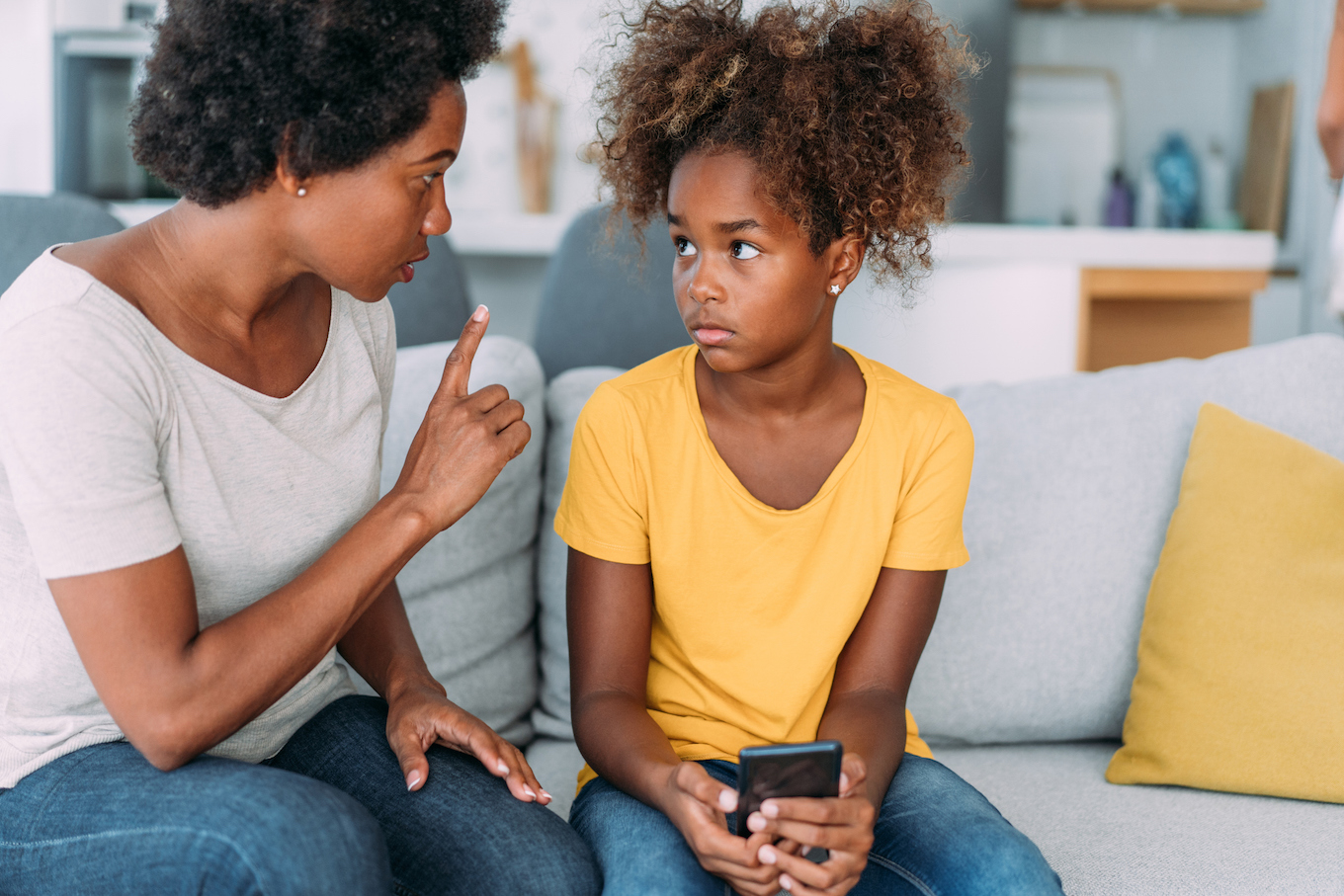
Conversations about sex should be just that — conversations, not lectures. “A lot of times if you try to lecture a teen, they’re just not gonna receive the information very well. They’re gonna tune it out,” Slaughter says.
“That’s why I think it’s important to not try to have one big conversation where you talk about everything. Because that’s not realistic and that’s sort of setting you up to, you know, be talking at them for a long period of time.”
Instead, she recommends having smaller conversations about different topics at different times.
Try to relate.

Slaughter says parents should meet their teens where they are. Maybe that means relating the content of the conversation to a recent TV episode or something similar.
“Let’s say you guys are watching a TV show together and you see one of the characters getting peer pressured. That could be kind of an in to start having that conversation,” she says.
Educate about red flags.

Slaughter thinks it’s important for teen girls in particular to get information about “abusive or coercive relationships.” That way they know what to look out for. One of the big signs? Love bombing. That’s when a relationship starts out with lots of attention, gifts, or affection from the partner. It’s usually used as a means of manipulation or control.
Slaughter says another potential red flag is when the partner gives the silent treatment. “Especially when, it’s like, ‘Oh, we’re doing love bombing for a while.’ And then after that the person is really cold. So then you’re pining for them,” she says.
We want our daughters to have strong, healthy relationships, so education about what to avoid is hugely important.
Don't enforce double standards.
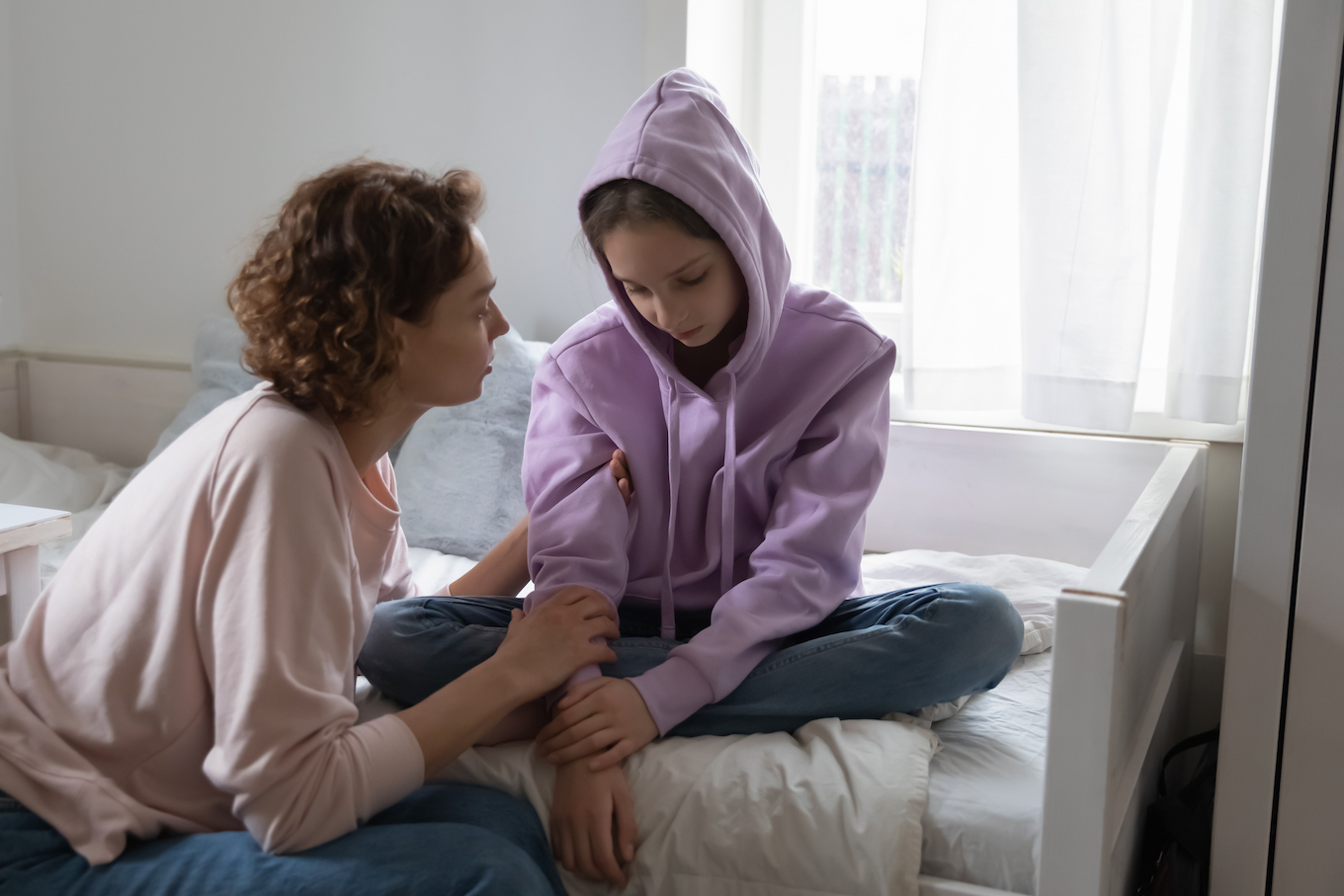
Young boys may be told about masturbation, but it’s rarer for girls to receive that education, according to The Cut. “There does tend to be a double standard,” Stratyner explains. “We should be having conversations about masturbation with children regardless of their gender. … Masturbation can be a really healthy expression of sexuality as long as it is navigated in a safe way.”
She adds that parents just need to be careful not to blame, shame, or stigmatize when discussing the subject.
Discuss what they might find online.

“Many people report that the first time they come across pornography is accidental,” Stratyner says. If our teen girls do, they may have questions, and we should be ready to talk to them about it.
As a sample conversation, Stratyner suggests, “‘You know, if you come across this, this is not a real relationship. How is this different from real life? And also, you know, if this is something that you’re exploring, which is normal for teenagers to do, how do we do that safely?'”
Approach without judgment.

With all of these conversations, it’s key to be nonjudgmental in our approach. Stratyner says we want to make sure our teens know they can always come to us with questions.
“Do we see sex and sexuality as something that is shameful and embarrassing? Or do we talk about it as a part of life that can be pleasurable and meaningful and enrich life?” Stratyner asks. “If you create a foundation that sets the stage for kids to feel that they don’t have to feel ashamed, they’re going to be more likely to come to you.”
We can't shirk the topic.
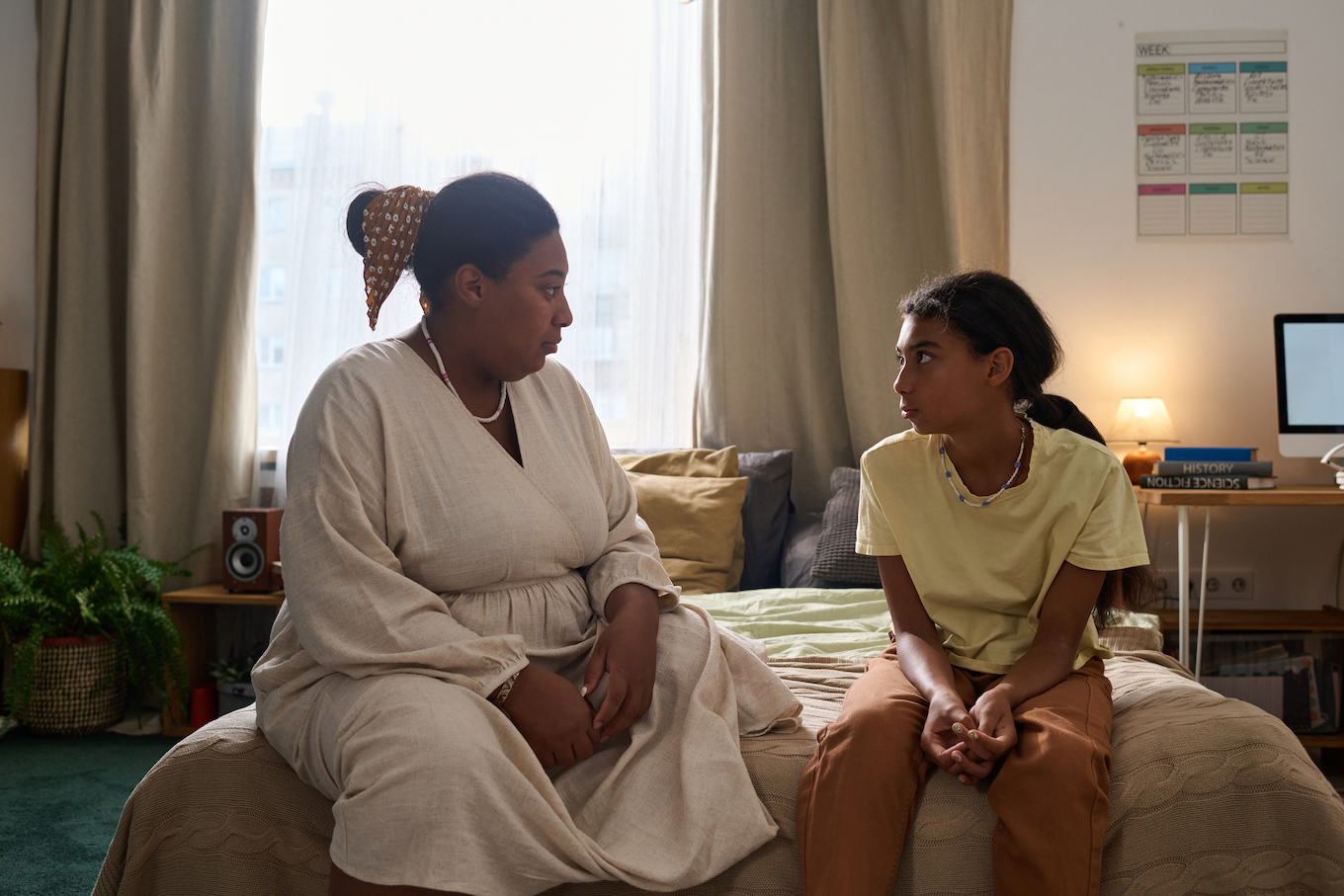
“It’s important for parents to make these conversations essentially not an option,” Stratyner says, adding that we can give some agency. For instance, which parent might the child feel most comfortable speaking with or should a conversation happen in the moment or slightly later? But we can’t let them opt out all together.
“It’s really easy — because it can feel awkward to talk about sex with our kids — to want to take the opportunity they give you … to not talk about it,” she says. “But we have to be the adult who is willing to engage in the difficult thing.”
Talking about sex doesn't equal encouragement.
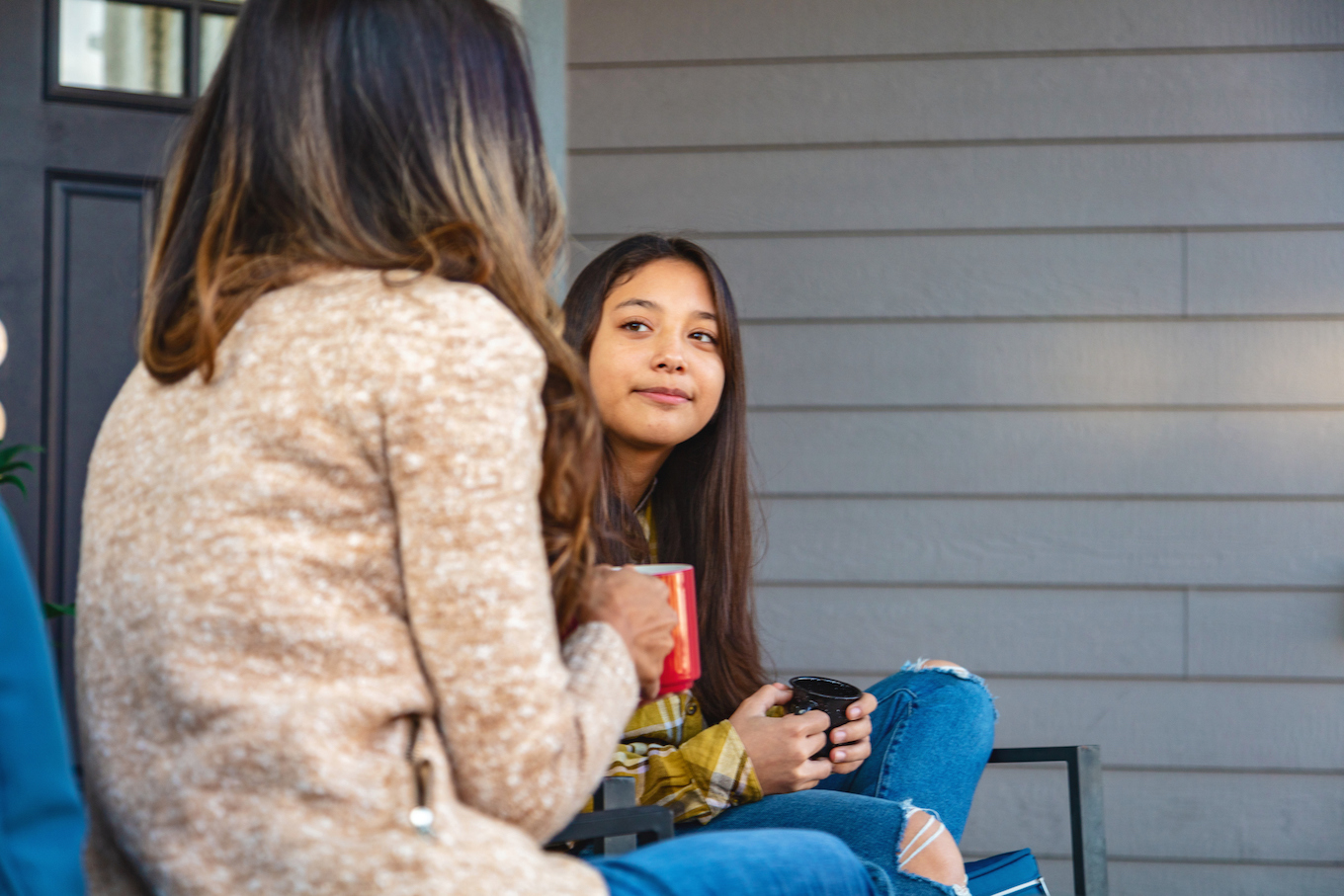
Bringing up sex won’t make our kids want to go out and try it. “Create an environment where your children know that they can come and talk to you if they have questions or concerns, and you won’t shame them or punish them,” Stratyner says.
“It is OK to say, ‘You know, what your values are as a family … We believe that you wait until you find someone you love. We practice safe sex behaviors. Let’s talk about what that is,'” she shared. “But having these conversations is not going to encourage kids to have sex.”
Consult accurate resources.

Educating ourselves prior to trying to educate our children is key. For online resources, Slaughter recommends the Mayo Clinic and Planned Parenthood.
For her part, Stratyner recommends the American Academy of Pediatrics as well as the child’s pediatrician.
“Most people don’t realize that pediatricians do a lot of work around making sure that kids have information about their health, and sexuality is an aspect of health,” she says. “So pediatricians will have resources for parents … they may also have guidance for having these conversations.”




